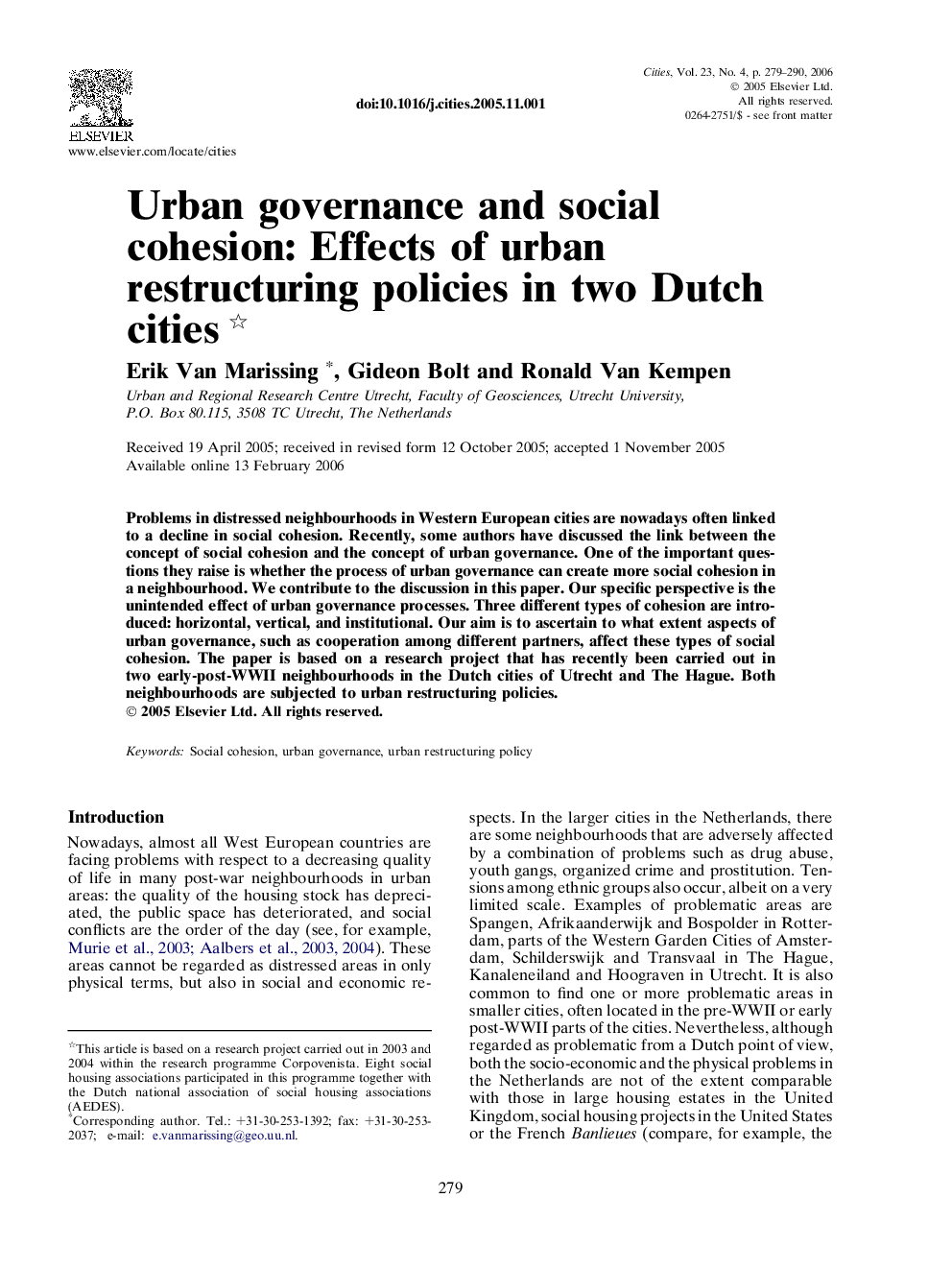| Article ID | Journal | Published Year | Pages | File Type |
|---|---|---|---|---|
| 1008904 | Cities | 2006 | 12 Pages |
Problems in distressed neighbourhoods in Western European cities are nowadays often linked to a decline in social cohesion. Recently, some authors have discussed the link between the concept of social cohesion and the concept of urban governance. One of the important questions they raise is whether the process of urban governance can create more social cohesion in a neighbourhood. We contribute to the discussion in this paper. Our specific perspective is the unintended effect of urban governance processes. Three different types of cohesion are introduced: horizontal, vertical, and institutional. Our aim is to ascertain to what extent aspects of urban governance, such as cooperation among different partners, affect these types of social cohesion. The paper is based on a research project that has recently been carried out in two early-post-WWII neighbourhoods in the Dutch cities of Utrecht and The Hague. Both neighbourhoods are subjected to urban restructuring policies.
